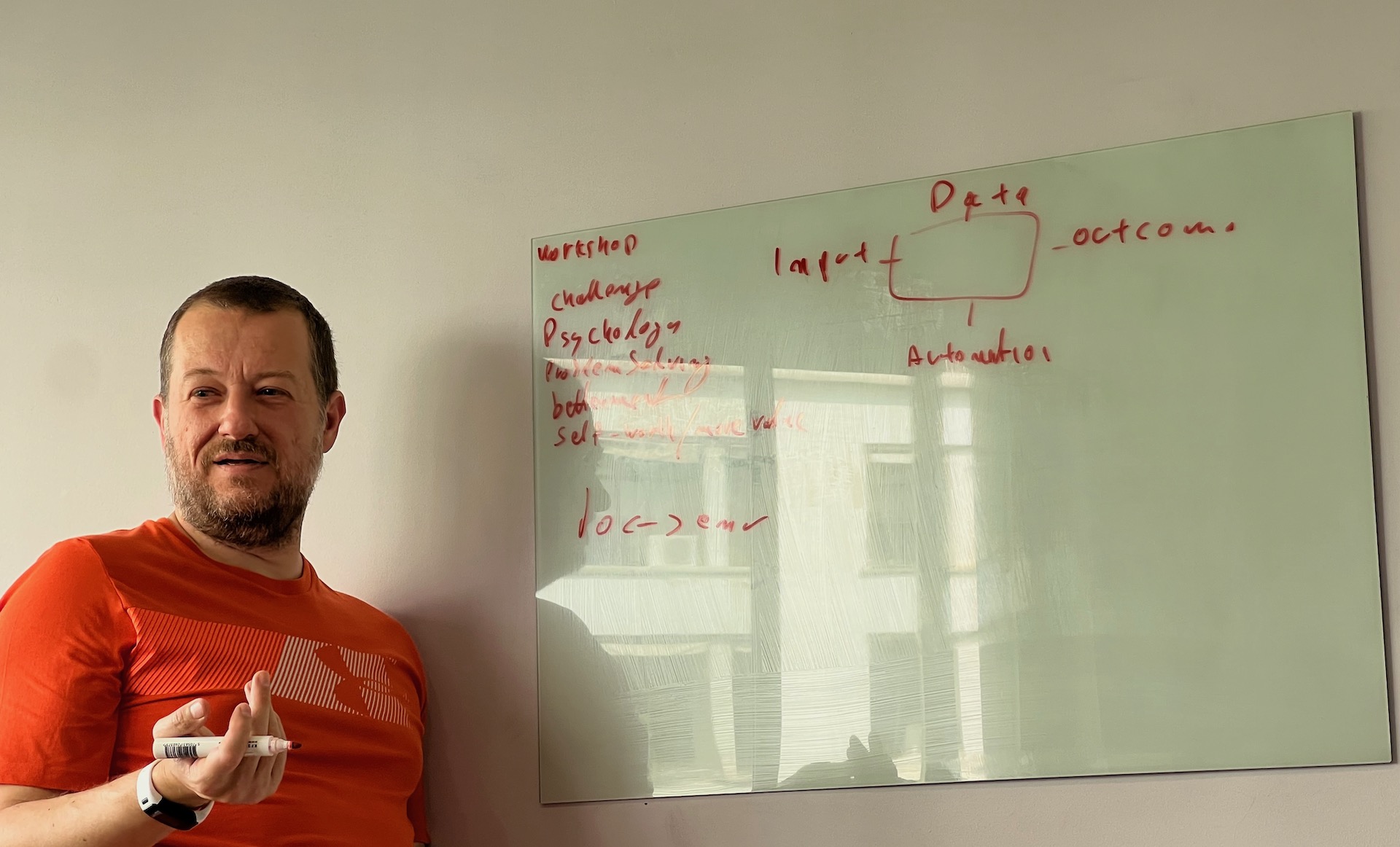Last month, we held our fourth company meet-up, where most of our small team got together and worked in person from our office for a whole week.
As part of our company meet-ups, we invite a friend to give a talk about their field of expertise. This time we had Dr. John Pagonis, co-founder of Zanshin Labsand accomplished UX researcher and Scrum coach, give us a spectacularly insightful talk on Personal Reflection with Journaling, or how to conduct your personal retrospectives to keep your mental health and yourself in check. The talk was interactive and with disarming trust, our team got to hear personal stories by John. We all were deeply involved and really grateful for it, as it made us think about personal improvement.

At some point John mentioned that a question that is worth asking yourself during personal reflection, or during difficult times, is “What could I remove to improve my life?”. This is truly a brilliant question that I have asked myself multiple times, acted upon the answer and have been helped by tremendously. As I chimed in to attend to this question, I also gave my two cents on a second-order question that I believe complements the first one, which I always ask myself afterwards “What is the trade-off?”.
Identifying the trade-off for each choice is crucial in getting the whole picture and being in peace with it.
Let me share a story on this. I am quite the routine person. I need a few things settled daily, so I can tolerate the uncertainty and enjoy the freedom of the rest of the day. One of these is starting the day off with a clean house and the kitchen kept clean is part of this; which is the last thing I do before I go to bed. As business got… busy earlier this year, this became harder and harder to pull off and it came in contention with having a full eight hour sleep, which in turn is non negotiable for a healthy life and work performance. This is when I asked myself “What could I remove to improve my life?”. The answer was clear, the late-night kitchen cleaning! However this was not all. When I moved on to the next question “What is the trade-off?”, the answer was “a not completely clean kitchen in the morning”, which is quite important for me. This automatically made me think and negotiate my untidiness threshold. The answer was again clear; if there are no rubbish in the house that produce unpleasant smells, it’s totally OK to have an untidy kitchen that I can tidy up and clean first thing in the morning. The priorities were now set and the situation was clear. I went for it, my daily mood got better and I faced a situation I had already visualised.
Every choice has a trade-off, even inertia. If there is no trade-off, there is no choice.
